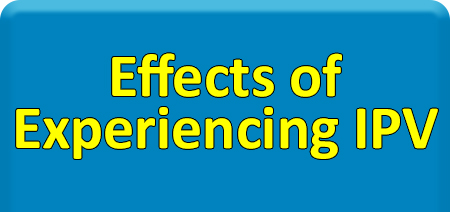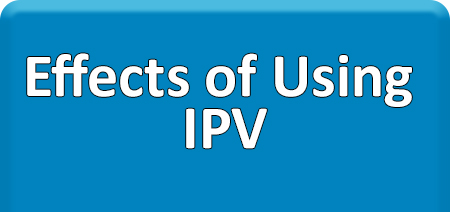VHA Social Work
Intimate Partner Violence Assistance Program (IPVAP) - VETERANS & PARTNERS - What is IPV?
 |
 |
 |
 |
 |
Experiencing intimate partner violence (IPV) can be traumatic emotionally.
While IPV does not always lead to a mental health or substance use disorder, those who experience, or even use, IPV and other traumatic events are more likely to develop a condition such as anxiety, depression, or post-traumatic stress disorder (PTSD); to misuse substances, and to have thoughts of suicide.
Suicide and IPV
Veterans and their families are at a high risk for suicide and IPV. IPV can increase the partners’ risk for suicide and their risk for homicide. Similarly, suicidal ideation in one or both partners in a relationship can increase the risk for IPV.
In the general population, 1 in 3 women and 1 in 4 men report experiencing IPV. In addition, 1 in 5 women who experience IPV threaten, attempt, or die by suicide.1* Some studies suggest that Veterans of both sexes are up to twice as likely as non-Veterans to report experiencing IPV in their lifetime.
You are not alone. If you or a loved one need immediate help, call 911 or go to the nearest emergency department.
Veterans who are in crisis or having thoughts of suicide, and those who know a Veteran in crisis, should contact the Veterans Crisis Line for confidential crisis intervention and support available 24 hours a day, seven days a week, 365 days a year. Call 1-800-273-8255 and Press 1, send a text message to 838255, or chat online at VeteransCrisisLine.net/Chat.
For non-emergencies, contact your mental health provider or request a referral to mental health services through your primary care team by calling your RN Care Manager or sending a MyHealtheVet Secure Message: https://www.myhealth.va.gov/mhv-portal-web/web/myhealthevet/home
To obtain more information on suicide prevention go to the VA Suicide Prevention website
Post-Traumatic Stress Disorder
PTSD sometimes develops after experiencing a traumatic event. PTSD symptoms can include nightmares and/or unwanted thoughts of the trauma during the day, flashbacks, feeling easily startled and on guard, intense emotional distress, and avoidance of reminders of the trauma. PTSD is common among people who have experienced IPV. On average, studies have shown that approximately 64% of women who have experienced IPV have PTSD. 2*
Learn more about PTSD on the VA National Center for PTSD website.
Depression
Depression can include feeling sad for long periods of time, feeling bad about yourself, feeling hopeless, not enjoying things you used to, and experiencing changes in motivation, appetite, and/or energy. Research has shown approximately 48% of women who have experienced intimate partner violence report coping with depression.2*
For both men and women, experience of IPV is associated with symptoms of depression.3*
Learn more about depression on the VA Mental Health website.
Substance Use
Substance use is common among people who have experienced IPV, with rates of use or abuse from 18-72%.4* Some people turn to substance use as a means of coping while others may have been forced into using substances by the person using violence towards them.
Are you coping with these or other emotional health concerns?
References
1. Cavanaugh, C. E., Messing, J. T., Del-Colle, M., O’Sullivan, C. & Campbell, J. C. (2011) Prevalence and correlates of suicidal behavior among adult female victims of intimate partner violence. Suicide and Life-Threatening Behavior 41 (4), 372-383. Retrieved from https://doi.org/10.1111/j.1943-278X.2011.00035.x*
2. Golding, J. M. (1999). Intimate Partner Violence as a Risk Factor for Mental Disorders: A Meta-Analysis. Journal Of Family Violence, 14(2), 99-132. https://doi.org/10.1023/A:1022079418229*
3. Coker, Ann L., Davis, K., Arias, I., Desai, S, Sanderson, M, Brandt, H., Smith, P. Physical and Mental Health Effects of Intimate Partner Violence for Men and Women. American Journal of Preventive Medicine(2002), 24(4), 260-268. https://doi.org/10.1016/S0749-3797(02)00514-7*
4. Rivera, E. A., Phillips, H., Warshaw, C., Lyon, E., Bland, P. J., Kaewken, O. (2015). An applied research paper on the relationship between intimate partner violence and substance use. Chicago, IL:
National Center on Domestic Violence, Trauma & Mental Health. Retrieved from http://www.nationalcenterdvtraumamh.org/wp-content/uploads/2016/03/IPV-SAB-Final202.29.1620NO20LOGO.pdf*
For more information or assistance, contact your local Intimate Partner Violence Assistance Program, Primary Care Social Worker, or other Provider. Women Veterans can also ask for the Women Veterans Program Manager.
Not yet a patient at VA? - Apply Now
Find help in the community by calling the National Domestic Violence Hotline at 1−800−799−7233 (SAFE) or TTY 1−800−787−3224.
* Links with an asterisk (*) next to them will take you outside the VA website. VA is not responsible for the content of the linked site. This link does not constitute endorsement of the non-VA website or its sponsor.























